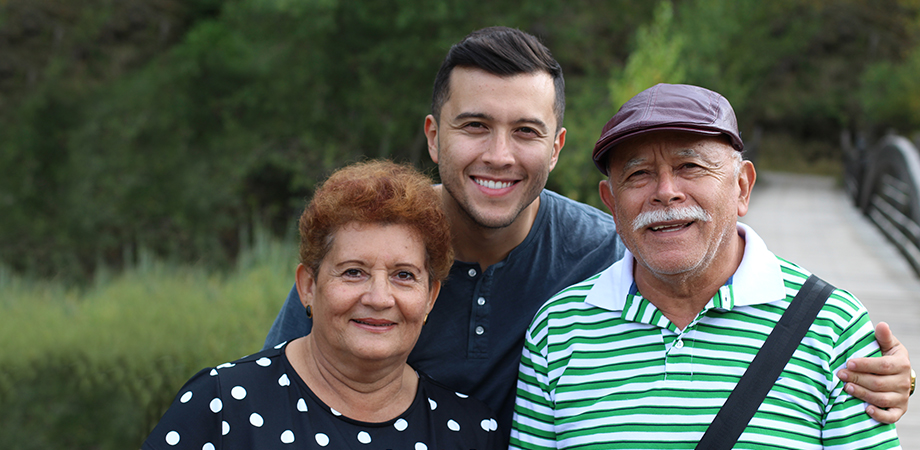March is Multiple Myeloma Awareness Month
Join with the aacr to find better ways to prevent and treat multiple myeloma

Multiple myeloma is a type of cancer that begins in plasma cells. These are white blood cell that are important to a healthy immune system. Over time, myeloma cells collect in the bone marrow, forming tumors in many of the body’s bones. These tumors may keep the bone marrow from making enough healthy blood cells and may weaken the bones.
Scientists do not fully understand the causes of multiple myeloma, but they know it is more common in some groups. These include older people, especially older men, and African Americans. Some common symptoms include bone pain, weakness or fatigue, weight loss, frequent infections, and frequent urination.
According to the National Cancer Institute’s Surveillance, Epidemiology, and End Results (SEER) Program, approximately 35,780 people living in the United States received a diagnosis of multiple myeloma in 2024. Furthermore, SEER estimated that about 12,540 people died of the disease.
Multiple myeloma is one of the specific cancer types that show the largest racial disparities in incidence and mortality. For example, the death rate from multiple myeloma is more than twice as high in Black people than in whites. The difference may be due in part to disparities in access to quality health care and newer treatment options. The AACR Cancer Disparities Progress Report 2022 discusses the problem: The State of Cancer Health Disparities in 2022.
The latest in research on multiple myeloma
- A post on Cancer Research Catalyst, the AACR blog, details a Blood Cancer Discovery commentary and keynote address on how to improve clinical trials for smoldering multiple myeloma.
- Patients with multiple myeloma have more treatment options today, thanks to cancer research. Read more on Cancer Research Catalyst: From Bench to Bedside: New Frontiers in Multiple Myeloma .
- Researchers in Canada conducted a study of patients with multiple myeloma, comparing outcomes for those treated in “real world” settings to those enrolled in clinical trials. Read more in AACR’s Cancer Today magazine: Real-world Outcomes in Multiple Myeloma.
One Person’s story

Cindy Brown of Coto de Caza, California, had chemotherapy, radiation, and stem cell transplants to try to achieve lasting remission from her multiple myeloma. She felt she was running out of options. Consequently, Cindy decided to enroll in a clinical trial of the immunotherapeutic teclistamab-cqyv (Tecvayli). Now she calls it a “game changer:”
“I have been in what is called a complete response for over three years and living a normal life, which is incredible,” she says. “This new treatment has really been different from any of my other treatments. Most importantly, this is the longest remission I have had. Thanks to this new immunotherapy, today I’m doing great.” Read her story in the AACR Cancer Progress Report 2023.
how the AACR supports Research in this area
The AACR has awarded research grants to investigators pursuing promising research on this form of cancer.
In 2022, Kara Cicero, MD, MPH, a clinical fellow in hematology and medical oncology at Columbia University, received the AACR-Bristol Myers Squibb Cancer Disparities Research Fellowship to study prevalence and risk factors of MGUS (Monoclonal Gammopathy of Undetermined Significance, a multiple myeloma precursor) in a black sub-Saharan African population.
“I hope that our study will deepen our understanding of the racial disparities surrounding MGUS and multiple myeloma in an understudied population that is also most likely to be affected,” she said.
In 2021, Julia Frede, PhD, a postdoctoral fellow at the Dana-Farber Cancer Institute, received a two-year AACR-Amgen Fellowship in Clinical/Translational Cancer Research. Dr. Frede’s project seeks to define therapeutic approaches that can overcome therapy resistance in patients with multiple myeloma by delineating changes in functional states which can be targeted. She is performing RNA sequencing of single myeloma cells in longitudinal samples from patients with relapsed/refractory myeloma to analyze and investigate changes in differentiation states.
“The [fellowship] gives me the opportunity to pursue my research investigating transcriptional heterogeneity and epigenetic plasticity in myeloma,” Dr. Frede said.
for more information
Please see our page on multiple myeloma, which includes information on treatment options.


